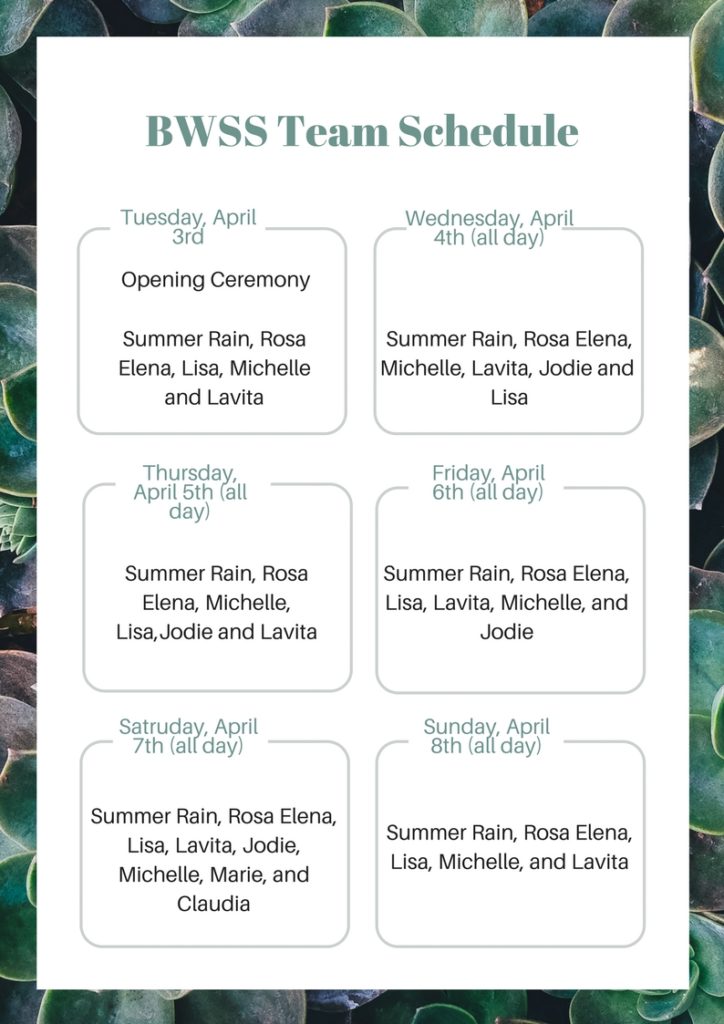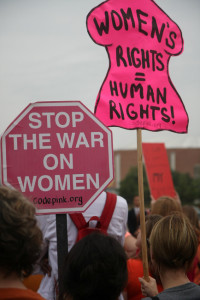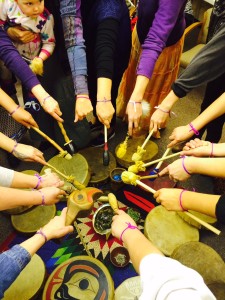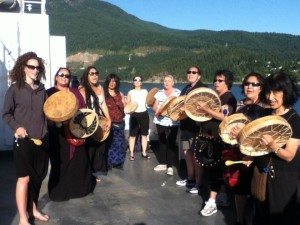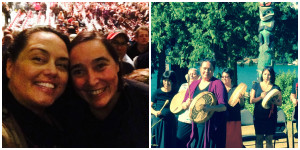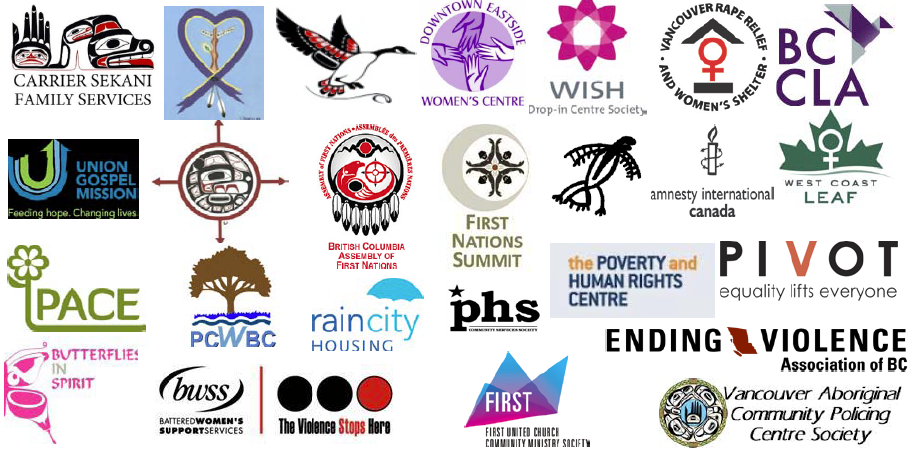
Coalition Honours Families and Advocates as Canada Launches National Inquiry into Missing and Murdered Indigenous Women and Girls
(Coast Salish Territory/Vancouver, B.C.- December 10, 2015) Earlier this week, the Canadian Government announced the launch of the national inquiry into missing and murdered Indigenous women and girls, beginning with pre-inquiry consultation. The Coalition on Missing and Murdered Indigenous Women and Girls honours families and advocates who fought tirelessly for the national inquiry, and looks forward to participating in the pre-inquiry consultation and the inquiry itself.
The Coalition invites the Honourable Carolyn Bennett, Minister of Indigenous and Northern Affairs, the Honourable Jody Wilson-Raybould, Minister of Justice and Attorney General of Canada, and the Honourable Patricia Hajdu, Minister of Status of Women to meet with us as part of the pre-inquiry consultation to be undertaken in British Columbia. Coalition members would also like to invite the ministers to the north to meet with the families and organizations there. The Coalition membership includes representation from families, survivors, Indigenous organizations, front-line service organizations, feminist and women’s organizations, legal advocacy sector, faith-based groups, and provincial organizations. Our breadth of representation and our experience with the Oppal Commission of Inquiry make the Coalition well-positioned to help inform this first stage of the inquiry.
For decades, Indigenous women and supporting organizations called for an inquiry into the disappearances of the many marginalized women from BC and we particularly recognize the hard work and commitment of the February 14th Women’s Memorial March Committee. For twenty-six years, the February 14th Women’s Memorial March has walked to protest the forces of colonization, misogyny, poverty, racism and to celebrate survival, resistance, struggle and solidarity to make women’s resistance visible. We also recognize the hard work of the Indigenous women and communities in Northern BC who have been instrumental in bringing forward the National Inquiry since the Highway of Tears Symposium in 2006.
The Coalition is encouraged that the Government of Canada will begin immediately engaging with survivors, family members and loved ones of victims, women’s groups, as well as National Indigenous, provincial, and territorial representatives, as well as frontline service providers to seek their views on the design and scope of the inquiry. We have provided preliminary recommendations for a sufficiently thorough pre-inquiry consultation process, and advised that the BC Missing Women Commission of Inquiry led by Wally Oppal cannot be used as a model for any aspect of a national inquiry, given its exclusion of key voices, narrow mandate that failed to address root causes, and only partially implemented recommendations.
Learning from BC’s mistakes in the Oppal inquiry, we are asking that family members and organizations with relevant knowledge of the issues be appropriately resourced by Canada to allow for full participation in the process. We also ask that the inquiry mandate meaningfully address root causes of violence against Indigenous women and girls, and that Canada put in place resources and mechanisms to ensure that recommendations coming out of the national inquiry will be acted on in a comprehensive way.
The Coalition on Missing and Murdered Indigenous Women and Girls initially came together in response to the Missing Women Commission of Inquiry in British Columbia overseen by Commissioner Wally Oppal. Unfortunately the groups who formed the Coalition were shut out of the inquiry; however, the Coalition continues to meet regularly to pursue justice for murdered and missing Indigenous women and girls and has grown in number and strength.
Media Inquiries:
Amnesty International Canada, Craig Benjamin, (613) 744-7667, ext. 235
Battered Women’s Support Services, Angela Marie MacDougall, (604) 808-0507
BC Assembly of First Nations, Regional Chief Shane Gottfriedson, (250) 318-8527
BC Civil Liberties Association, Josh Paterson, (778) 829-8973
Butterflies in Spirit, Lorelei Williams, (778) 709-6498
Canadian Federation of Students- BC, Simka Marshall,
Carrier Sekani Family Services, Mary Teegee, (250) 612-8710
Carrier Sekani Tribal Council, Tribal Chief Terry Teegee, (250) 640-3256
Downtown Eastside Women’s Centre, Alice Kendall, (604) 681-8480
Ending Violence Association of BC, Christina Entrekin Coad, (604) 633-2506, ext. 13
February 14th Women’s Memorial March Committee, Fay Blaney, (778) 714-0161, Mona Woodward, (778) 714-6448
First Nations Summit, Colin Braker, (604) 328-4094
First United Church, Genesa Greening, (604) 681-8365
Neskonlith Indian Band, Kukpi7 Judy Wilson, (250) 319-7383
PACE: Providing Alternatives Counselling & Education Society, Laura Dilley, (604) 872-7651
PHS Community Services Society
Pivot Legal Society, Kevin Hollett, (778) 848-3420
Poverty and Human Rights Centre, Shelagh Day, (604) 872-0750
RainCity Housing, Amelia Ridgway, (604) 662-7023
Union of B.C. Indian Chiefs, Grand Chief Stewart Phillip, (250) 490-5314
Vancouver Aboriginal Community Policing Centre Society, Lillian Howard, (604) 253-9575
Vancouver Rape Relief and Women’s Shelter, Keira Smith-Tague, (604) 872-8212
Union Gospel Mission, Derek Weiss, (604) 253-3323
West Coast LEAF, Kendra Milne, (604) 684-8772
WISH Drop-in Centre Society, Mebrat Beyene, (604) 669-9474
Beverley Jacobs, Jacobs Law, (778) 877-7402
Jenny Kwan, Member of Parliament for Vancouver East
Melanie Mark, BC NDP Candidate Vancouver- Mount Pleasant, contact Nathan Allan, (604) 338-2967
Download the Media Release in PDF format here.
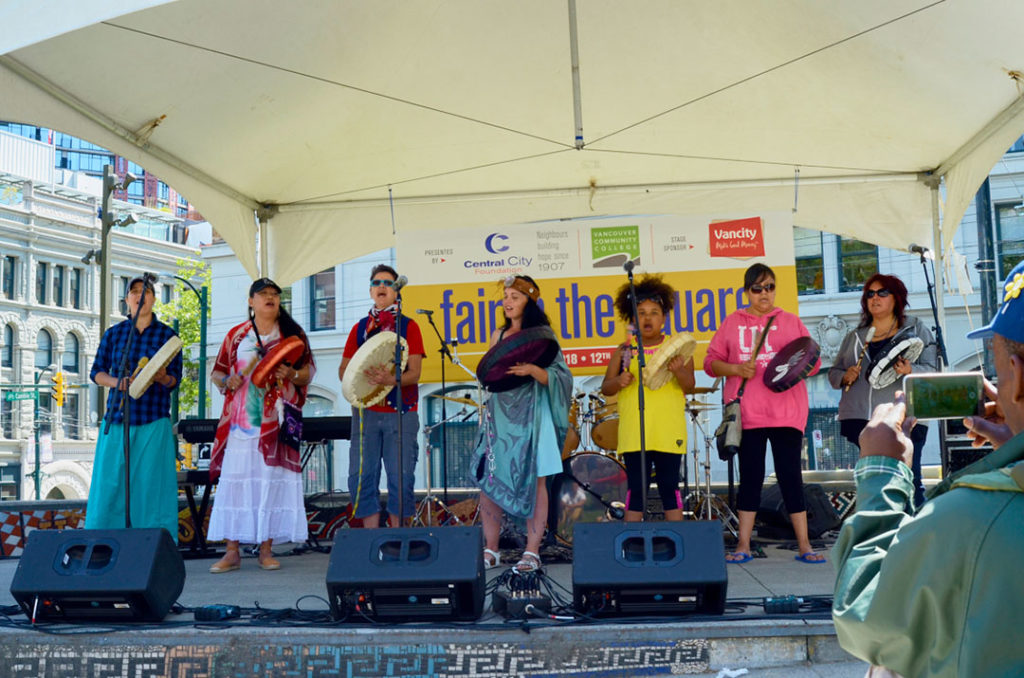

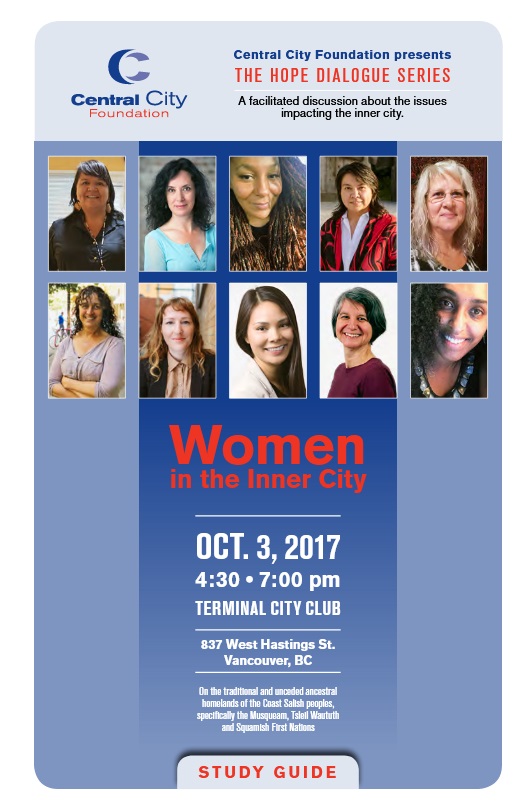
 BWSS is offering counselling and crisis support services during and beyond the Missing and Murdered Indigenous Women and Girls inquiry hearing scheduled for Vancouver on April 3rd to 8th 2018 at the Sheraton Vancouver Airport Hotel, 7551 Westminster Highway in Richmond.
BWSS is offering counselling and crisis support services during and beyond the Missing and Murdered Indigenous Women and Girls inquiry hearing scheduled for Vancouver on April 3rd to 8th 2018 at the Sheraton Vancouver Airport Hotel, 7551 Westminster Highway in Richmond.